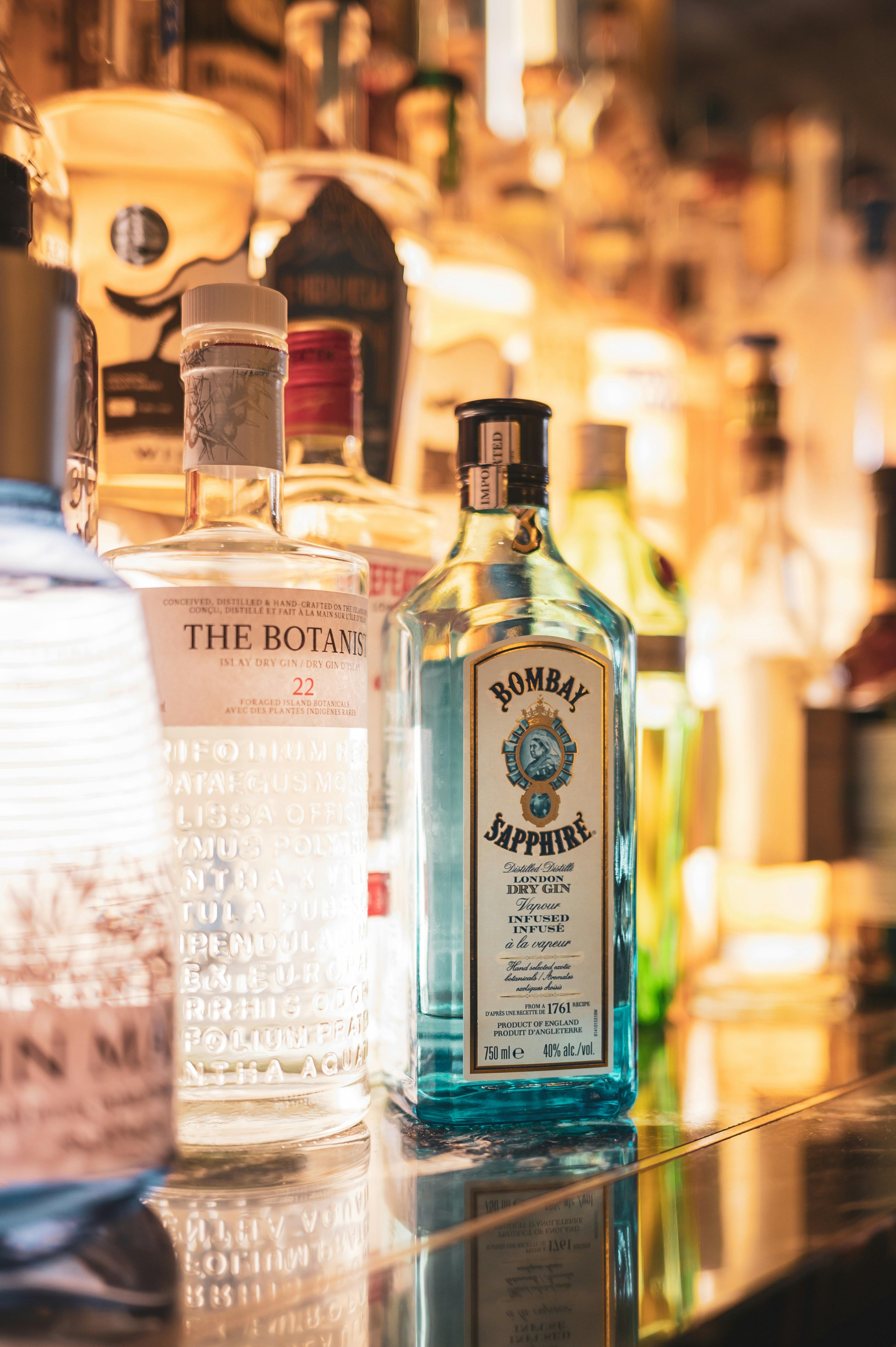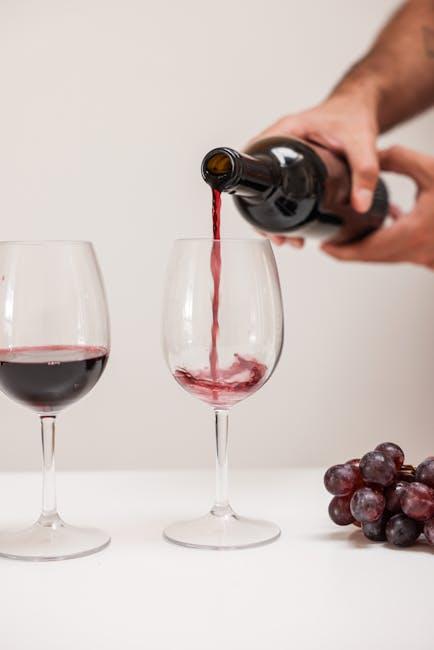In the journey toward achieving weight loss goals, many travelers find themselves at a crossroads where social habits and personal aspirations collide. Among these habits, the consumption of alcohol often stands as a formidable yet overlooked companion. While a glass of wine may seem a harmless indulgence or a celebratory toast, its effects on the intricate dance of metabolism and calorie balance can be profound. As we uncork the science behind alcohol’s influence on weight loss, this article aims to illuminate the hidden pathways through which alcohol interacts with our bodies, potentially steering us off course from our desired health destinations. Join us as we explore the nuanced relationship between alcohol consumption and weight management, and uncover strategies to navigate this often uncharted territory without compromising on life’s pleasures.
Navigating the Empty Calories in Your Glass
When pursuing weight loss goals, understanding the hidden calorie traps in your favorite beverages can be a game-changer. Alcohol, often viewed as a social lubricant or a way to unwind, is also a sneaky contributor to daily caloric intake. Unlike nutrients that offer sustenance, these calories, termed as “empty calories,” provide no nutritional benefit, potentially derailing your dietary efforts. Consider the following:
- Beer: A pint can pack anywhere from 150 to 200 calories.
- Wine: A standard glass contains approximately 120 calories, but who stops at just one?
- Cocktails: Mixed drinks can be calorie bombs, with some reaching over 500 calories per serving due to sugary mixers.
These liquid indulgences can quickly add up, subtly sabotaging your calorie deficit. Therefore, moderation is key. Opt for lighter versions, or better yet, alternate with water or non-caloric beverages to maintain balance. By making informed choices, you can enjoy social occasions without compromising your weight loss ambitions.

Unraveling the Metabolic Mysteries of Alcohol Consumption
While the allure of a glass of wine or a frosty beer is undeniable, the intricate dance between alcohol and metabolism is often overlooked in the pursuit of weight loss. When you indulge in an alcoholic beverage, your body prioritizes metabolizing the alcohol over other nutrients. This means that the calories from alcohol are burned first, while the calories from carbohydrates, fats, and proteins are stored as fat. This process can lead to a temporary halt in fat burning, impacting your overall weight loss progress.
- Caloric Density: Alcohol contains 7 calories per gram, nearly as much as fat, making it easy to consume excessive calories without realizing it.
- Appetite Stimulation: Drinking can increase appetite, often leading to overeating or unhealthy food choices.
- Hormonal Effects: Alcohol consumption can alter hormones like insulin, affecting how your body stores and burns fat.
Balancing social enjoyment with fitness goals requires mindfulness. Opting for lower-calorie drinks, spacing out consumption, and incorporating alcohol-free days can help maintain your weight loss trajectory without sacrificing social pleasures.

Strategies for Balancing Social Drinking with Weight Loss Ambitions
Navigating the path between enjoying social drinks and staying committed to weight loss can be challenging, but it’s entirely achievable with some thoughtful strategies. First, opt for lower-calorie beverages such as light beers, wine spritzers, or spirits mixed with soda water. These choices can significantly reduce your calorie intake compared to sugary cocktails or full-bodied beers. It’s also wise to set a drink limit before heading out. This not only helps control calorie consumption but also ensures you remain mindful and in control throughout the evening.
Another effective approach is to alternate alcoholic drinks with water or a non-alcoholic option. This keeps you hydrated and helps curb the overall number of drinks consumed. Additionally, consider the timing of your meals; eating a nutritious meal before drinking can prevent excessive snacking on high-calorie bar foods. Lastly, embrace the power of moderation and make sure to prioritize social interactions over drinking. Focusing on the social aspect can help shift the emphasis away from alcohol, aligning your actions with your weight loss goals.

Crafting a Mindful Drinking Plan to Support Your Fitness Journey
Alcohol, while often enjoyed socially, can significantly affect your weight loss journey. Understanding how to incorporate it mindfully into your lifestyle is crucial. The calories from alcohol are often termed “empty” because they provide energy but lack essential nutrients. Additionally, alcohol can disrupt your metabolism, making it harder for your body to burn fat effectively. It may also lower inhibitions, leading to poor dietary choices that can derail your progress.
- Caloric Impact: A standard drink can contain anywhere from 100 to 150 calories, which can add up quickly over a week.
- Metabolic Disruption: Alcohol is prioritized by your body as a fuel source, temporarily halting fat oxidation.
- Appetite Stimulation: Drinking can increase appetite and decrease willpower, leading to overconsumption of unhealthy foods.
To align your drinking habits with your fitness goals, consider these strategies:
- Opt for lower-calorie options like light beer or spirits mixed with soda water.
- Set clear limits on the number of drinks per week.
- Alternate alcoholic drinks with water to stay hydrated and reduce intake.
- Plan your drinking around workouts, ensuring alcohol doesn’t interfere with your exercise schedule.
In Conclusion
As we navigate the complex journey toward achieving our weight loss goals, the role of alcohol emerges as both a companion and a challenger. Like the clinking of glasses that marks celebrations, the effects of alcohol resonate through our efforts, sometimes subtly altering the path we tread. Balancing enjoyment with ambition, we find ourselves at a crossroads where informed choices can make all the difference.
In this dance of desires and discipline, understanding the nuances of alcohol’s impact allows us to make decisions that align with our personal health aspirations. Whether it’s savoring a glass of wine or opting for a refreshing mocktail, the power lies in our hands to chart a course that respects both our social joys and our fitness ambitions. As the final drops settle, let us toast to mindful moderation and the pursuit of a healthier, balanced lifestyle, where every decision is a step toward the goals we hold dear.


































